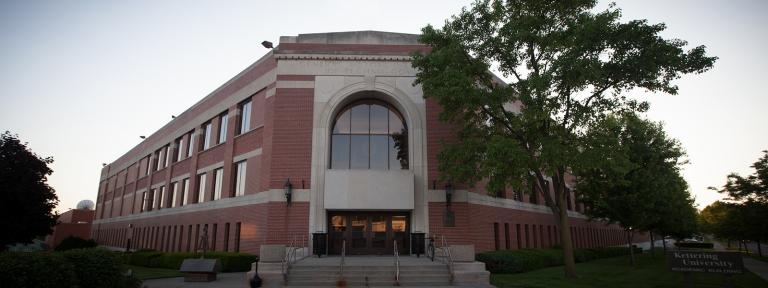
“A big part of our decision to go to Kettering is that we could keep working at MITRE.”
Mark Wahnish and Kelly Powell have transformed their childhood passion for robotics into a lifelong learning journey as they chose to attend Kettering University together and are currently co-workers at The MITRE Corporation’s site in Tampa Bay, Fla.
MITRE is a not-for-profit organization that provides systems engineering, research and development, and information technology support to the government. It operates federally funded research and development centers for the Department of Defense, the Federal Aviation Administration, the Internal Revenue Service and Department of Veterans Affairs, the Department of Homeland Security, the Administrative Office of the U.S. Courts, and the Centers for Medicare & Medicaid Services.
“A big part of our decision to go to Kettering is that we could keep working at MITRE,” Wahnish said. “So we get that practical experience and of course we get a paycheck which helps. When we come out of it, we build a better relationship with the company that allows us to hire in.”
Wahnish is majoring in Mechanical Engineering with a minor in Computer Science at Kettering and engaged in a joint thesis project with Powell centered on aquatic robotics. Powell is a double-major in Computer Engineering and Engineering Physics. She’s engaged in this thesis project in order to apply her computer engineering education to a problem that practitioners and researchers are attempting to solve.
“Underwater robotics - it can be anything from a robot that is like a boat to submerged communications,” Powell said. “Part of the problem is that you have to be able to communicate with it. It’s difficult to communicate because radio and wireless does not travel under water.”
A unique aspect of the project is that Wahnish and Powell have reached out to area high school students and incorporated them into their business model and process. They are using high school students as builders and designers of the robot in order to provide STEM outreach and potentially reduce the costs of development. They are also exploring open source software and hardware components as another cost-effective strategy.
“One of the main benefits that is making this effective is the students that we are working with in FIRST Robotics,” Wahnish said. “So these teams that we are working with are actively looking for community service opportunities. We are providing high quality research at a low cost and the students are getting the community service they are looking for. It’s a win-win.”
Wahnish and Powell describe their experience at MITRE with relentless enthusiasm and energy as the non-profit has afforded them opportunities that they don’t feel they would have gotten anywhere else.
Both Powell and Wahnish did land- and air-based robotics work at MITRE's Virginia site. Powell has worked in MITRE’s Colorado Springs site’s physical engineering division. Wahnish also had an opportunity to work at the organization’s Bedford, Mass., location in order to gain experience in the mechanical engineering components that are leading to the completion of the thesis project.
It’s fitting that Wahnish and Powell are working together on their senior thesis as it culminates a lifelong learning partnership that began in fifth grade during summer robotics camp. Both continued to work on robotics through middle school and at East Lake High School in Tarpon Springs, Fla., which also contains an engineering academy, before jointly attending Kettering together.
For Wahnish, Kettering University is a family affair His grandfather Robert Tuck graduated from Kettering in 1944 and his dad Paul is a teacher at East Lake High School and is dually appointed as a faculty advisor for the robotics team and a recruiter for the university and is the director of the engineering academy. By association, Powell became amalgamated into robotics and engineering world and they haven’t looked back since.
“We get to build robots all day,” Wahnish said, to which Powell added: “We get to play all day.”